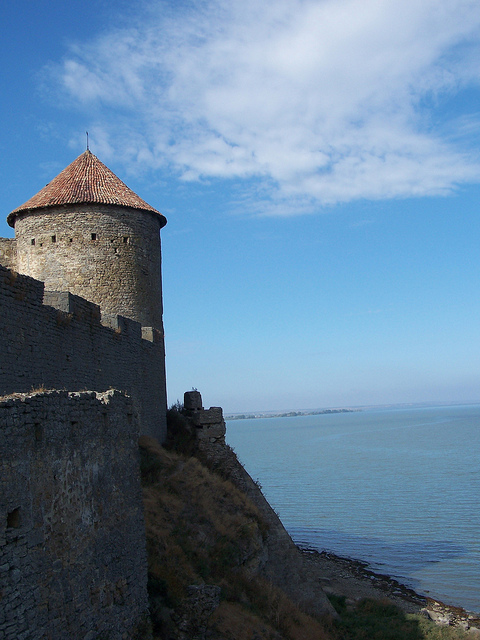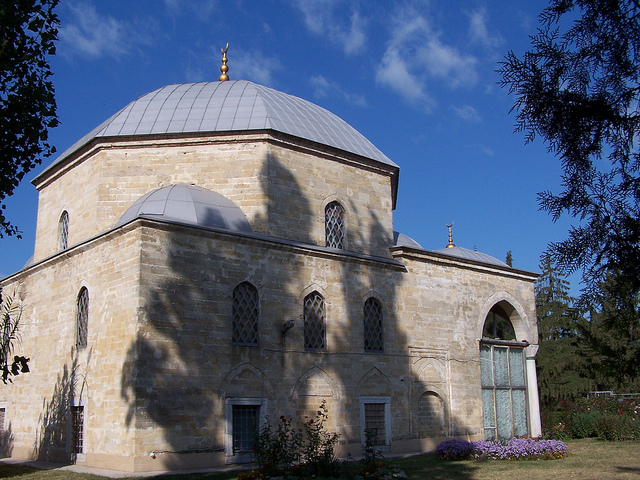17th October 2011
Bessarabia, Ukraine and Europe
The towers of the fortress rise above the Black Sea. Within mighty walls, bastions soar.
Our guide says it’s hard to be sure who built which bits: over the past two millennia, the site has been occupied by Greeks, Romans, Poles, Goths, Huns, Moldovans, Hungarians, Bulgarians, Tatars, Russians, Genoese and Turks.
Down the road there was even a settlement of German-speaking Swiss, producing wine from 1820 until evicted by the Soviet Union in 1940.
The bastions we’re admiring belong to the Fortress of Akkerman, located on the Black Sea coast at the settlement of Bilhorod-Dnistrovskyi, founded in the 6th Century BC about an hour south of what is now Odesa.
I’ve written before about Ukraine’s turbulent history; and how the way Moldova cuts off the southernmost part Ukraine illustrates the cruel legacy of the intra-Soviet borders drawn up by Stalin. This southern tip of Ukraine, part of the historic region of Bessarabia and home to around 600,000 people, also seems to have had more than its fair share of history.
South of Akkerman on the Danube lies Izmail, whose fortress was demolished under the Treaty of Paris in 1856 after the Crimean war. All that remains is a mosque, now home to a diorama depicting the Russian storming of Izmail in 1790.
Further east, near the mouth of the Danube, is the picturesque town of Vilkovo, founded in impenetrable marshland by Russian “Old Believers” escaping religious persecution.
The central part of the region contains agricultural land whose rich soil and warm climate are good for vineyards – hence those Swiss, some of whose houses still survive in the town of Shabo (supposedly from Asha-Abag, Turkish for “lower gardens”).
Modern wineries such as Guliyev, Shabo and Kolonist now produce high-quality wines with brand-new equipment imported from Europe.
As so often, Europe holds the key to the future. Isolated under the Soviet Union, the region now shares a border with Romania. The European Union is already engaged here, including at two projects we visit in the villages of Tatarburany (domestic solar heating and insulation) and Banivka (school improvements).
If Ukraine can successfully pursue its European integration process, that will help transform areas such as the Bessarabian region of Ukraine into the rich agricultural heartlands they potentially could be; and the striking sights of Akkerman and Vilkovo will begin to attract the tourism and investment they deserve.
The key question, as I said in a blog last week, is whether Ukraine is able to show by its actions that it wishes to pursue the path towards Europe.
To view more photos, click here.


